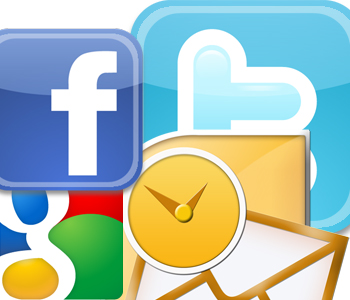| Previous issues | Subscribe |
| STUDENTS & GRADUATES |
|---|
|
|
|
|
|
|
|
|
| TECHNOLOGY |
|---|
|
|
|
|
| INITIATIVES - LANGUAGE |
|---|
| INTERNATIONAL |
|---|
| HIGHLIGHTS |
|---|
|
|
|
|
|
|
|
|
|
|
|
|
|
|
|
Co-editors: Elissa Allerhand, Ilene Bloch-Levy Photographer: Gideon Markowitz Graphic Designer: Laura Grinberg Web Manager: Batsheva Engelberg-Behr Web Master: Sonia Pechersky |
| TECHNOLOGY |
|---|
Is Technology Tromping the ABC's?
Some 1 billion people will be using Facebook by the end of this year. More than 40 million use PowerPoint, and 175 million+ are tweeting on a regular basis. Three billion people use SMS and two billion have email accounts. We twitter on androids, SMS on smartphones, Google and email on our iPhones, update Excel charts on our laptops, scroll through Facebook on our tablets, and read on our Nooks. Nearly one of every four people around the world excels in expanding his network, staying in contact, updating, commenting, and posting. So, we must be technologically literate and innovative. Dr. Kalman disagrees. Senior lecturer in the Open University's Department of Management and Economics, Dr. Yoram Kalman studies ways in which advanced digital technology impacts people, organizations and society. For many years, research studies have offered an imbalanced view of technology. As soon as new technology hits the marketplace, there is an exaggerated "oh wow" response to it and similarly exaggerated expectations. Dr. Kalman explains, "We talk about digital literacy or facility as if it is the be all and end all of communications." But is it? "If we make the distinction between technical skills and communication skills," Dr. Kalman responds, "then the fact that we can use advanced technologies does not mean that we can effectively get our message across, nor does it mean that we know how to effectively utilize the unique affordances of digital communication tools." "There is a misconception. Many believe that if we purchase the cutting edge gadgets and learn how to operate them, then we are digitally literate and innovative. But, is everyone who has a new car and a license a good driver? Skills such as the ability to communicate, think critically, be creative are independent of technological proficiency. These are skills that are not really cultivated by our educational system." And, his research bears this out.
Page: 1 2
|
